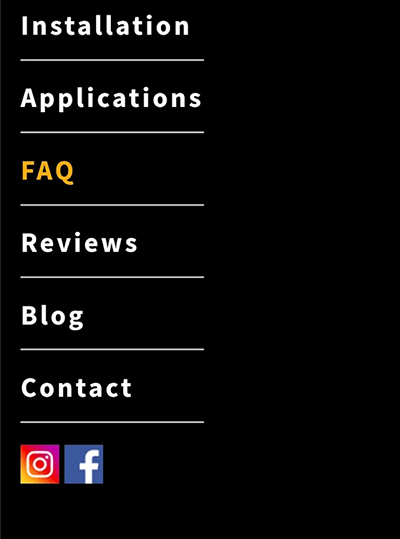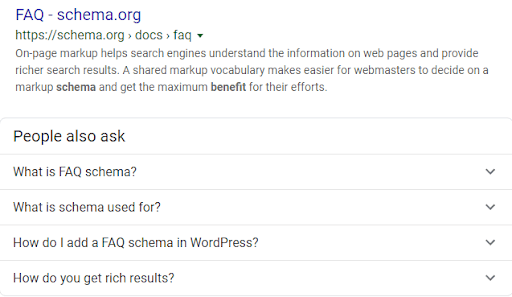
In another interesting twist and a means to keep users on search results (and away from individual websites), this past May, Google announced the new rich results in the form of FAQs within SERPs.
Many sites have Frequently Asked Question or FAQ pages. Webmasters need to make sure that these pages have schema markup. Schema markup is a semantic vocabulary of tags (or microdata) that provides search engines with information necessary for them to better understand your sites’ content, enabling the best possible search results. It is basically a behind the scenes language that is added to the HTML.
One of the advantages of adding schema mark-up to your FAQ page is that when your snippet does make it to the SERP, it takes up a lot more real estate, pushing your competition further down on the page. In the following example, I searched, “FAQ schema benefits” and the following was on page one:

As a direct result of taking up more space in the SERP, click-through rate can be improved as well. Right now Google is not limiting the characters of the answers to the FAQ questions. Sounds like a win/win.
According to Google, FAQ Schema can be used on any page that contains a list of questions and answers on any particular topic. Other great opportunities to consider with schema markup are How To and Q&A pages. Again, these types of informative, potentially keyword rich pages can be effective attention grabbers while taking up prime real estate on SERPs – especially on mobile devices.

